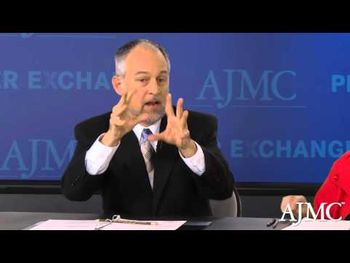
Health Care Cost
Latest News
CME Content

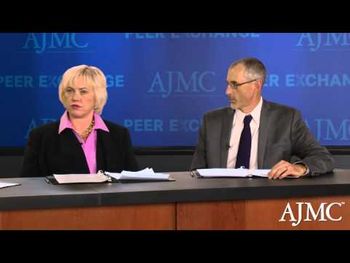
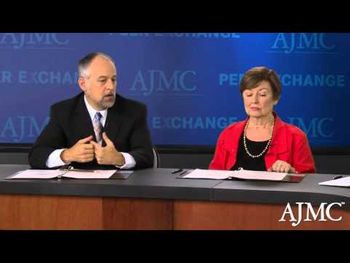
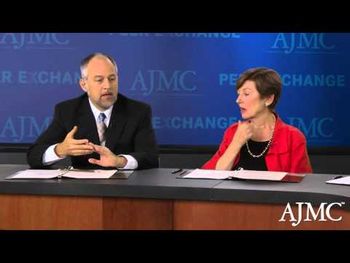
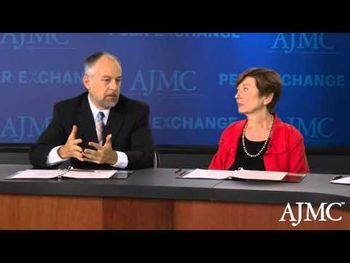

The shift to a pay-for-performance environment healthcare gets the provider more involved with the patient, which has a greater impact on quality measures like adherence, said Mitzi Wasik, PharmD, BCPS, director of Pharmacy Medicare Programs at Aetna, Inc.

A new study in JAMA Internal Medicine has found that financial integration between physicians and hospitals has led to higher spending in outpatient care.

Better support for healthcare providers to reduce stress and prevent burnout was a key point of conversation during the opening keynote at US News & World Report's third annual Hospital of Tomorrow forum in Washington, DC.

As the country moves from volume to value, accountable care organizations (ACOs) can play a key role during the transition from fee-for-service. How well do you know ACOs?

Even though the US spent far more on healthcare in 2013 than other comparable high-income countries, it has the lowest life expectancy and some of the worst health outcomes, according to a study by The Commonwealth Fund.

Pathways are still a young enterprise so barriers to their adoption are being more readily recognized than the number of problems being solved are, according to Robert Dubois, MD, PhD, chief science officer and executive vice president of the National Pharmaceutical Council.

Pregnant women need clear, transparent information on the costs associated with childbirth so they can derive the most value form the healthcare they receive.

Although CMS has introduced a strict timeline to move to value-based payments, its new Oncology Care Model is partially relying on fee-for-service, and that's a good thing in the case of oncology, said Ira Klein, MD, MBA, senior director of quality, Strategic Customer Group at The Janssen Pharmaceutical Companies of Johnson & Johnson.

With pay-for-performance evolving from the "check-the-box" model, providers need to learn to work within teams that can understand these new programs, explained Mitzi Wasik, PharmD, BCPS, director of Pharmacy Medicare Programs at Aetna, Inc.

Meaningful use stage 3 is not scheduled to start until 2017, but 41 medical societies are calling to delay the start of stage 3, especially given recent changes to Medicare.

Multispecialty medical groups and integrated delivery systems expect fee-for-service payments to decline 24% in the next 2 years, according to results of a survey from the American Medical Group Association.

As CMS moves to value-based payments, having good measures of value that payers and providers trust will be critical, explained Stuart Guterman, senior scholar in residence AcademyHealth.

Given how much technology will evolve over the next 20 years, predicting the future of healthcare is almost impossible, but Margaret O'Kane, MHA, president of the National Committee for Quality Assurance, expects big things from telemedicine and predicts new investigations in motivating patients to take control of their own wellness.

Unaccounted for social and clinical characteristics of a hospital's patient population explain nearly half of the difference in readmission rates between the best and the worst performing hospitals when it comes to Medicare penalties for hospital readmission rates.

Healthcare policy experts gathered in Washington, DC, to discuss access, cost, and the definition of value in oncology care.

Creating a statement that mental health and physical health have parity is important for achieving outcomes in patients with chronic illnesses, said Trishan Panch, MBBS, MPH, chief medical officer at Wellframe.

As CMS pushes healthcare systems to move away from fee-for-service, the state's largest insurer makes a major move toward value-based payment.

Research has shown that telehealth has the potential for better care at lower costs and with increased convenience, but the issue of paying for this service has yet to be addressed.

A survey of groups using and developing clinical pathways revealed 7 distinct themes that highlight how these pathways are created and used, and the challenges and barriers to creating new pathways, explained Robert Dubois, MD, PhD, chief science officer and executive vice president of the National Pharmaceutical Council.

Although the fee-for-service model of reimbursement has been blamed as an reason for high healthcare costs in America, a report from HealthPocket found that eliminating this payment model in provider-owned health plans did not produce the cheapest health plans.










